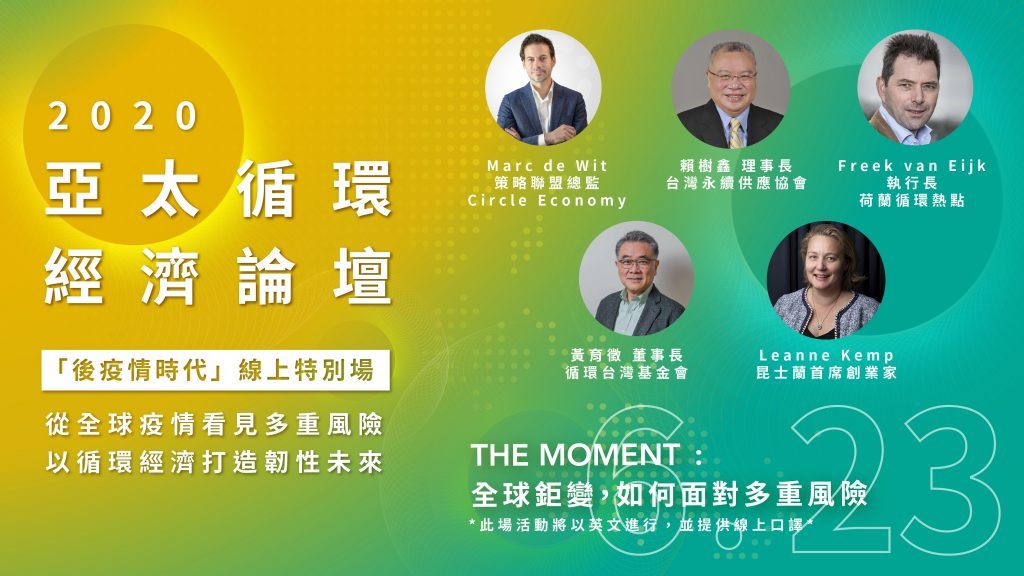Session One Highlights | Asia Pacific Circular Economy Roundtable (APCER)
Our first forum brought together participants from five continents and 18 countries online—thank you all for joining us! Below is a summary of each speaker's key points. Click the full video to dive deeper.
Marc de Wit|Director of Strategic Alliances, Circle Economy
"Rethinking Climate and Linear Economy Risks in a Post-Pandemic World"
- Only 9% of global resources are currently circulated.
- As linear economies develop, most businesses and societies face significant risks.
- “Linear risk” refers to the risks posed by linear business models that can jeopardize an organization’s long-term viability.
- Companies must consider not only their internal operations but also their value chains, industries, investors, and the broader global economy.
Shu-Hsin Lai|Chairman, Taiwan Sustainable Supply Association
"Optimizing Supply Chains and Building Resilience: Shifting from Cost Advantage to Risk Reduction"
- Manufacturing is evolving into service: Taiwan must enhance value-added services through AI, cloud, and digital technologies. New types of innovative supply chains are needed globally.
- Innovation drives transformation and circular economy development.
- Circularity and sustainability should begin with family education—not only within schools.
Freek van Eijk|CEO, Holland Circular Hotspot
"Post-Pandemic Pathways to a Sustainable and Circular Future"
- After the pandemic, 250 high-impact Dutch CEOs urged the government to invest in green transition plans. The EU has further integrated the Green Deal with its sustainability goals.
- For resource-scarce countries like the Netherlands, efficient resource use is even more critical.
- In 2016, the Netherlands made a national commitment to achieve a circular economy by 2050.
- Circular economy is achievable, but requires concrete policies to reach those goals.
- The pandemic is a wake-up call—we must take it seriously.

Leanne Kemp|CEO, Chief Entrepreneur of Queensland
"Forecasting, Foresight, and Profit: Understanding the Third Dimension of Economic Recovery"
- We now care not just about profit, but also climate change—it affects the next generation.
- Fulfilling Maslow’s basic needs—from food to love—is essential for a better future.
- Human and material relationships are chemical reactions; when we learn to respect materials, we learn to respect one another.
- My vision for 2030: ethical and sustainable supply chains, redesigned products, and Industry 4.0 technologies like IoT and AI for tracking—from sourcing to maintenance and end-of-life recycling.
- By then, circular economy will no longer be a topic—it will be the new normal.
Charles Huang|Chairman, Circular Taiwan Network
"Circular Taiwan 2040 – For the Next Generation"
- What kind of world are we leaving to the children born today? Begin with the end in mind—anything is possible.
- You cannot change the status quo by fighting it. To make change, create a new model that renders the old one obsolete.
- The pandemic has revealed deep flaws in our society—linear systems are fragile. We need systemic redesign to enable true reuse and recycling.
- As a nation, we should shift our development focus from GDP to the SDGs.
- Bob Marley once said, “Live for yourself and you will live in vain; live for others, and you will live again.” True life comes from living for others.
